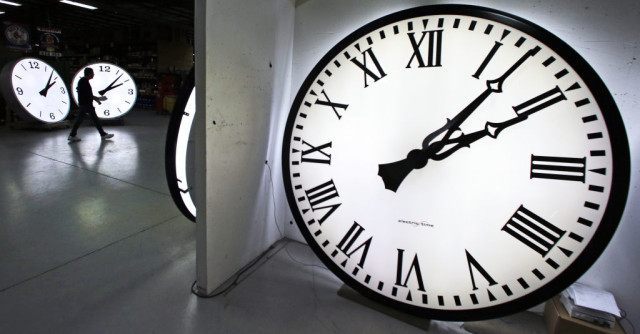With growing support in Sacramento to eliminate Daylight Savings Time, the one class of Californians most excited about the idea are criminals, who hate daylight savings time because they are more likely to be seen by witnesses and police.
Sensible Germans first implemented daylight savings time (DST) in 1916 hoping to save energy in World War I. The U.S. followed in 1918 during war-time coal rationing. Farmers, who must get up with the sun and their animals, actively lobbied against it as disruptive. But most states approved DST because the retail industry and consumers are the big supporters, because it offers people more waking daylight time.
But with the additional support of Republican Los Angeles County Supervisor Michael Antonovich, Assemblyman Kansen Chu (D-San Jose) and the Democrat majority are moving to pass AB-385: Daylight Saving Time that would eliminate advancing “the standard time by one hour during the period commencing at 2 a.m. on the 2nd Sunday of March of each year and ending at 2 a.m. on the first Sunday of November of each year.”
Chu told the Sacramento Bee that the reason he wants to eliminate daylight savings time (DST) is due to caregivers for seniors, complaining that “this one-hour difference really impacted their lives.” He also argued that there is evidence that studies have shown the loss of an hour of sleep due to the time change can increase the risk of health-related problems, including stroke and heart attack, as well as workplace accidents and car crashes.
The real reason the State Assembly wants to eliminate DST is to bring back President Jimmy Carter’s bone-headed 1971 emergency act that suspended daylight savings time in the hope of reducing electrical demand from residential air-conditioning use.
The best reason to keep DST is the University of Virginia’s Frank Bratten School of Leadership and Public Policy’s report that credits it with reducing “robbery by 51 percent, murder by 43 percent and rape by 56 percent during the “extra” hour of evening daylight.”
UVA also found that offenders do not simply “reallocate” crime to a later part of the day, as overall daily crime totals in the three weeks following DST also fell significantly.
Based on four years of 2008 through 2012 data from the National Incident-Based Reporting System, researchers found that crime rates during the three weeks before and after spring DST took effect found a “deterrent effect more than incapacitation.”
In layman’s terms, that means criminals respond to the fact that better lighting increases the likelihood of being seen by witnesses or police, which discourages criminal activity. The report stated that northern U.S. cities, like Chicago, would actually benefit from having even later sunsets.
The researchers estimated that during the period under review, daylight saving time resulted in over $550 million in avoided social costs of crime per year.
The United Kingdom has been experimenting for decades with “Double Summer Time” — a two-hour daylight saving from spring to fall. The British Parliament considered a bill last year to make DST permanent, and then shift another hour forward at summer.
United Kingdom law enforcement agencies also support creating an extra hour of evening light to help people get home during daylight hours, because, British thieves also tend to do their dirty work under the cover of darkness.

COMMENTS
Please let us know if you're having issues with commenting.